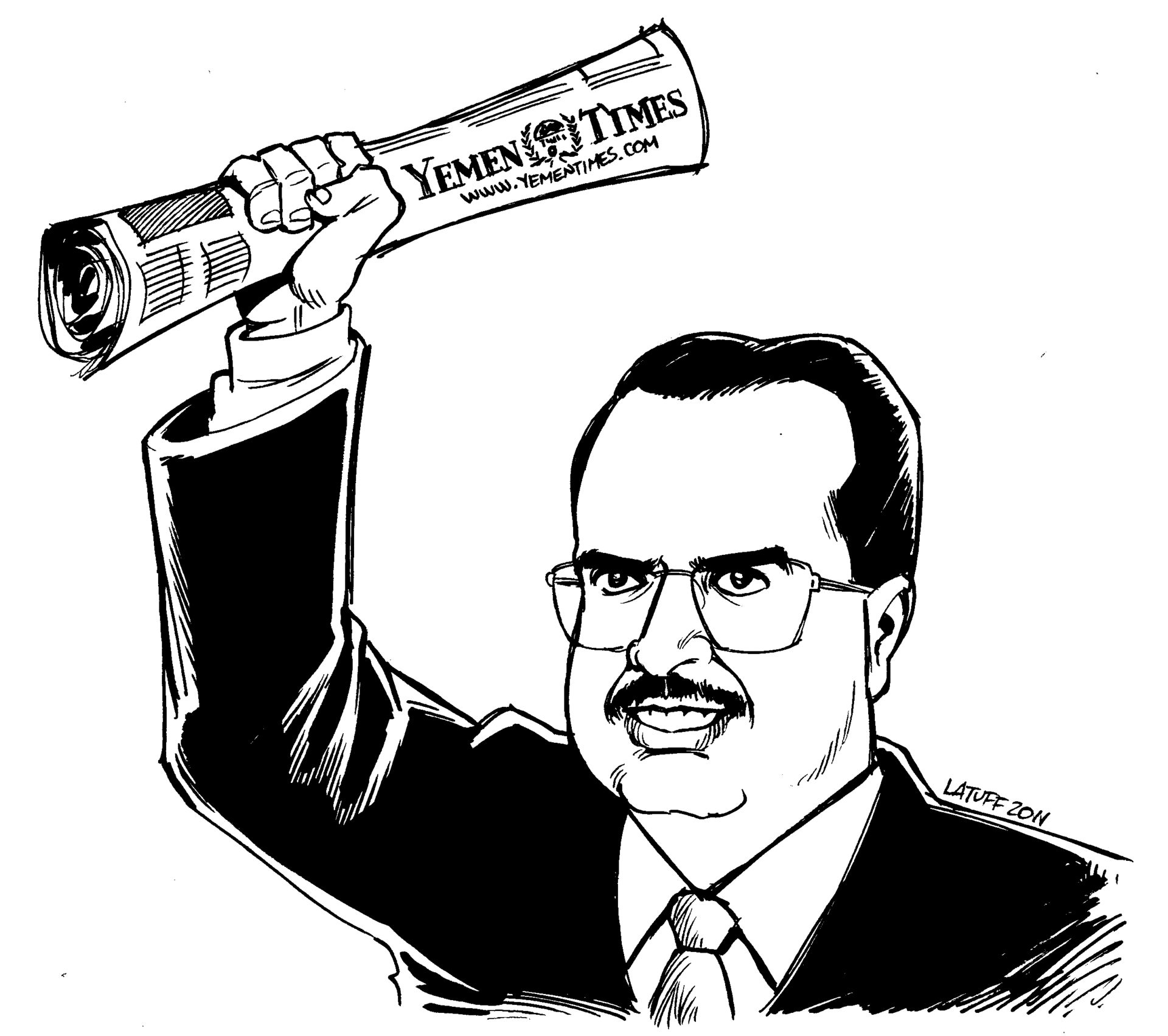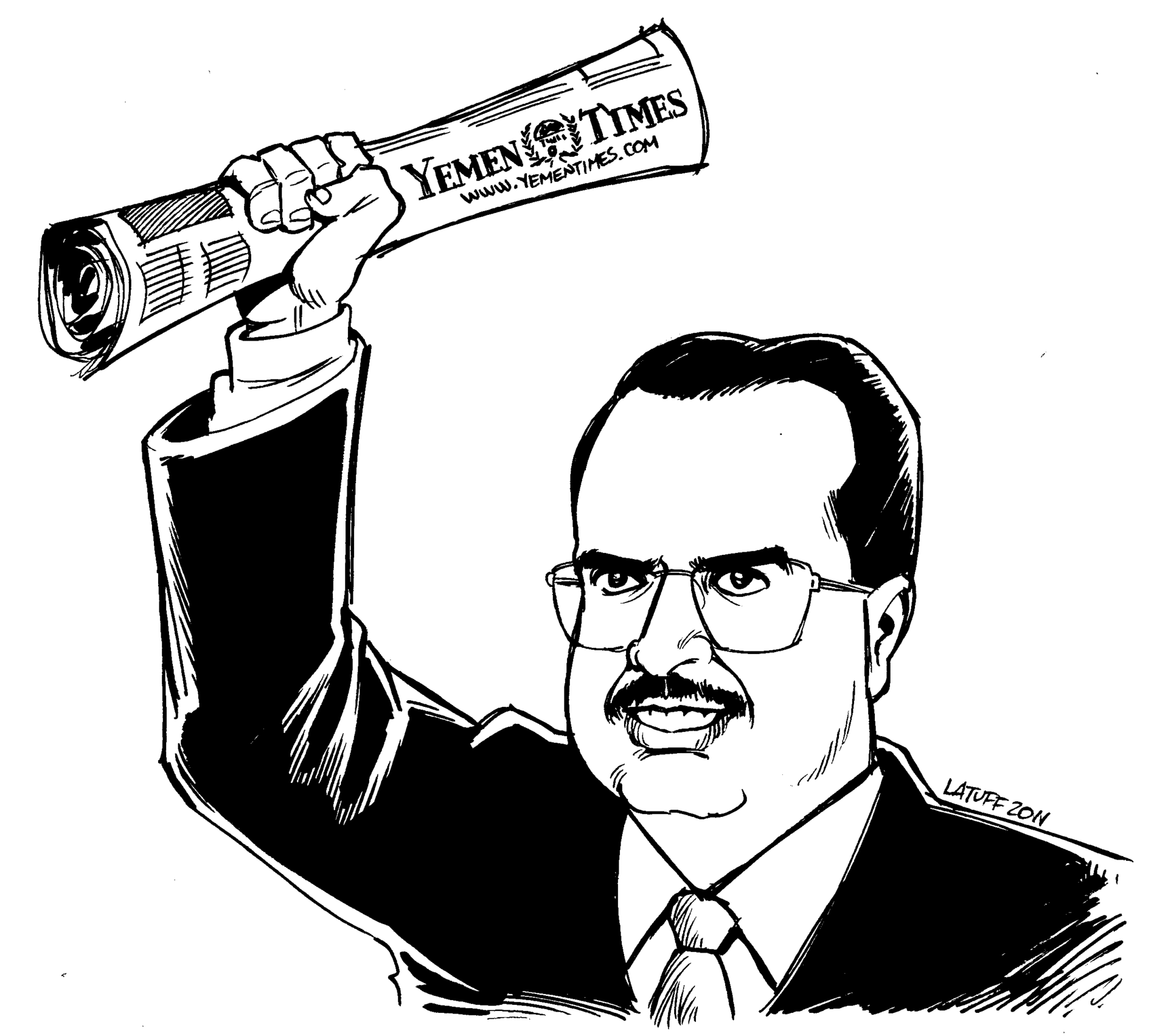
Abdulaziz Al-Saqqaf: Prominent Advocate of Human Rights in Yemen [Archives:1999/50/Last Page]

A year has passed since the 50th anniversary of the Universal Declaration for Human Rights which was celebrated by Dr. Abdulaziz Al-Saqqaf.
Dr. Abdulaziz Al-Saqqaf welcomed the 50th anniversary from the podium of his forum ” Yemen Forum 21.”
He talked about today’s world which rejects the transgressions of human rights and regards them as taboos.
A year ago Dr. Abdulaziz Al-Saqqaf cited a memory of a personal experience and said, “In late 1982 some educated Arab intellectuals decided upon establishing the Arab Organization on defending human rights. We could not find a place to embrace us in the Arab World so we had to meet in Cyprus and declare the tasks of the organization there.”Assessing the human rights situation, Dr. Al-Saqqaf dealt with the official steps that Yemen has followed to indicate that they have become acceptable in the field of dealing with human rights especially that the Yemeni government established a special committee in defense of human rights in the parliament and in the Consultative Council.
Dr. Abdulaziz Al-Saqqaf was the chairman of the Human Rights and Freedoms Committee and the Civil Society Organizations in the Consultative Council.
While Dr. Al-Saqqaf was praising the institutional development in the field of human rights, he remained alert and cautious to the many and serious transgressions of the Ministry of the Interior, especially in Criminal Investigation and Prisons. The Dr. stated more than once that the main reason behind these breaches is the lack of awareness in legal and judicial control authorities. Many officers and soldiers require training and qualification on the nature of their jobs. The ‘half-blooded case’ was one that took a great deal of Dr. Abdulaziz’s thought, the one who is always busy with human rights cases in Yemen. He criticized the procedures that the General Administration of Emigration and Passports and the Authority of Civil Register use and the several transgressions against the rights of half-blooded Yemeni citizens who are of foreign mothers.
In this regard Dr. Abdulaziz said, “The current procedures have created two degrees of citizenship which contradict Yemeni constitution and International laws.”
Dr. Abdulaziz used to think that most of the transgressions against human rights are attributed to educational and social retardation but at the same time he recognized the presence of such transgressions for political reasons.
Last year this month, I accompanied him when he visited some jails in Aden, Hodeidah, Hajjah, Taiz and other cities. We found kids, young girls, men and women in miserable conditions who were put in jail without standing trial. That situation made Dr. Abdulaziz angry and this made him take the humanitarian cause when he decided to bear the personal responsibility for releasing more than 3000 prisoners in different regions in the country. These are just examples and not enumerations that this man was a defender of human rights. He also stood against rape incidents against Yemeni and Foreign women. For example, in a Hadhramawt incident, he adopted a campaign to defend two women who were raped by security and military members and the incident of the rape of a German tourist in Al Hodeidah. He also adopted a seminar about children and violence in the Yemeni society in which many Yemeni specialists participated.
One of the seminar papers, presented by Dr. Mohammed Awad Ba Obaid, pointed out that the most important reasons that led youths to commit violence crimes are attributed to inappropriate family conditions, bad adaptation with school and the influence of friends.
Dr. Abdulaziz has stood in face of the most dangerous case, the case of torture and prisons. He aroused the case of Mohammed Al-Kawkabani who was tortured to death by security officers in Al-Mahweet and because of Dr. Abdulaziz Al-Saqqaf, along with the well-known lawyer Mohammed Nag, these officers stood trial.
In the field of defending freedom of opinion and expression, Dr. Abdulaziz defended press in a manner that assured the presence and dignity of Yemeni press for the first time after the 1994 civil war. He was the only adventurous and brave person in discussing the war’s case and its effects on democracy. That stand led to his arrest by the authorities. Even after that, Dr. Abdulaziz was always the defender of journalists and freedom of the press.
As chairman of the Freedoms Committee in the Consultative Council, he held many seminars concerning children, environment, woman and education. He was also the head of the committee which was established to stand against torture and held a seminar in this regard.
In addition to all that, I have never seen a man who stood in such admirable courage in support of a seminar to be held regarding the Yemeni-Eritrean affair. Dr. Abdulaziz Al-Saqqaf acted as a lightning conductor in the stormy atmosphere of the relations between Yemen and Eritrea.
By: Ahmed Al-Haj
——
[archive-e:50-v:1999-y:1999-d:1999-12-13-p:./1999/iss50/lastpage.htm]


